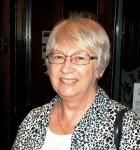'Numerous commentators have noted affinities between Australia and America. These observations differ in tone and focus but they are all strongly indicative of a perceived connection between two countries in the 'new' world, former colonies of an imperial power. They are suggestive of literary connections that have never been fully documented or analysed. Studies of links between Australia and England exist, pitched at both the academic and the general audience. But apart from several articles by Laurie Hergenhan, and his 1995 biography of Clinton Hartley Grattan, Australian and American literary connections have been, until recently, largely unexplored.
The first large-scale, systematic examination of the area is currently in progress through David Carter's 2006 ARC-funded research project 'America Publishes Australia: Australian Books and American Publishers, 1890-2005'. If there is a commonality to be found in the history of publishing and reception of Australian literature in America it should emerge from David Carter's study, but I suspect that there will also be evidence of a significant number of unique situations and circumstances which defy generalisation. In this paper I will examine some individual cases of Americans whose connections with Australian literary culture have been of significant and lasting importance, in particular Clinton Hartley Grattan and William Warder Norton' (Author's abstract).

